
1 THE OLDEST ITEM AMONG CORONATION SPOON
Even in 1349, the Coronation Spoon was thought to be of "ancient forme". Probably made either for the first Plantagenet monarch, Henry II (r1154-89), or his successor, Richard the Lionheart (r1189-99), the silver gilt spoon measures 26.7cm in length, likely just a little longer than the spoon you use to serve spuds on a Sunday afternoon.
Viewed alongside some of the spectacular items that make up the Crown Jewels, it might easily be overlooked. However, it is of huge ceremonial importance. The bowl of the spoon is divided in half by a ridge. During the coronation, the archbishop of Canterbury dips two fingers into either side of the bowl before anointing the new monarch as supreme governor of the Church of England.
Further back, the spoon may once have been used for mixing wine and water, but its first recorded ceremonial use in a coronation came in 1603, after James VI of Scotland came south to take the throne of England and Ireland as James I (r1603-25).
On succeeding James, Charles I (r1625-49) proved unequal to holding the throne and England descended into civil war. When the English Commonwealth was created in 1649, the decision was taken to flog off or melt down the medieval and Tudor items that made up the original Crown Jewels. The spoon fetched 16 shillings when it was bought by a member of the royal household, Clement Kynnersley.
And so the spoon might have passed into private hands forever, except that after the Interregnum, Kynnersley presented the spoon to Charles II (r1660-85). With the Restoration, Kynnersley became the new monarch's first yeoman of the Removing Wardrobe, a job that involved looking after the royal furnishings that travelled from palace to palace.
This story is from the {{IssueName}} edition of {{MagazineName}}.
Start your 7-day Magzter GOLD free trial to access thousands of curated premium stories, and 9,000+ magazines and newspapers.
Already a subscriber ? Sign In
This story is from the {{IssueName}} edition of {{MagazineName}}.
Start your 7-day Magzter GOLD free trial to access thousands of curated premium stories, and 9,000+ magazines and newspapers.
Already a subscriber? Sign In
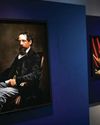
'Dickens's evocation of the fears, excitement and confusion of childhood is peerless'
DR LEE JACKSON ON WHY CHARLES DICKENS REMAINS RELEVANT TODAY
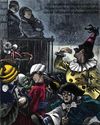
THE AUTHOR GOES ABROAD
Dickens expanded his horizons and boosted his fan-base by venturing overseas - but global fame came with a cost
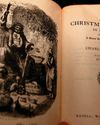
REVIVING THE FESTIVE SPIRIT
A Christmas Carol wasn't just a bestseller - it changed the way that Britons chose to mark the festive season
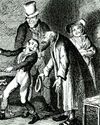
GIVING THE POOR A VOICE
From Hard Times to Oliver Twist, Charles Dickens used his pen to help illuminate the lives of the less fortunate
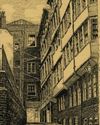
A JOURNEY THROUGH DICKENS'S LONDON
The works of Charles Dickens are synonymous with visions of Victorian London. We talk to Dr Lee Jackson about the author's love of the capital, and the locations that most inspired him
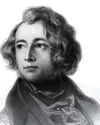
EXCEEDING EXPECTATIONS
Dr Lee Jackson chronicles Charles Dickens's journey from down-at-luck teenager to titan of Victorian literature
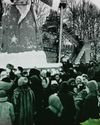
GIFTS, TREES & FEASTING
We take a journey through the photo archives to reveal how Christmas and its many traditions have been celebrated over the years - and around the world
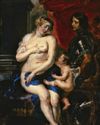
WHAT GREAT PAINTINGS SAY
We explore the story behind an allegorical painting that celebrates the triumph of love over hate, peace over war
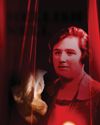
HELLISH NELL
Malcolm Gaskill delves into the life of Helen Duncan - the fraudulent Scottish medium whose ectoplasm-filled seances saw her ending up on the wrong side of the law

7 THINGS YOU (PROBABLY) DIDN'T KNOW ABOUT THE WHITE HOUSE
Presidential historian Dr Lindsay M Chervinsky reveals some of the most surprising facts about the world-famous US residence